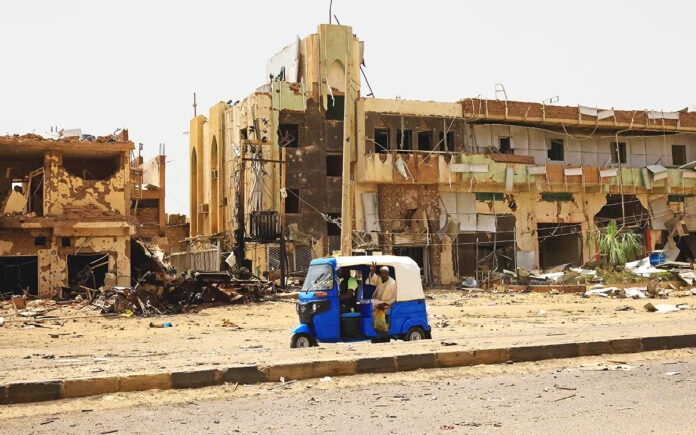Khartoum: Sudan’s Rapid Support Forces (RSF) and allied groups have signed a transitional constitution, marking a significant step toward establishing a parallel government as their conflict with the army enters its third year. The move raises concerns over the potential fragmentation of Sudan as fighting continues to devastate the country.
The RSF, which has recently faced setbacks in the war, remains embroiled in a conflict that has led to widespread displacement, severe hunger, and reports of ethnically motivated killings and sexual violence. Despite its challenges, the paramilitary group continues to launch long-range attacks, including a drone strike on Tuesday targeting Sudan’s largest power generation facility at the Merowe Dam. The attack, confirmed by an army statement, caused major power outages across northern Sudan.
Sudan's Rapid Support Forces signed a transitional constitution in an attempt to pull legitimacy from the army-led government it has been fighting for two years and facilitate advanced arms imports https://t.co/aCIuJvByN6 pic.twitter.com/FnZyIT0WFf
— Reuters (@Reuters) March 6, 2025
Meanwhile, the army reported advances in Sharg el-Nil as it intensified efforts to encircle RSF forces in the capital, Khartoum.
The RSF-led constitution aims to replace the legal framework established after the military ousted longtime ruler Omar al-Bashir during Sudan’s 2019 uprising. Tensions between the RSF and the army escalated further in 2021 when they jointly staged a coup, disrupting the country’s transition to civilian rule. In April 2023, a new plan for transition reignited hostilities between the two factions.
By late February, the RSF and its allies had already agreed in principle to form a government for what they termed a “New Sudan,” seeking to undermine the legitimacy of the army-led administration and open avenues for acquiring advanced weaponry.
Also Read | Russian Missile Strike on Kryvyi Rih Hotel Kills Two, Injures 29
The newly signed constitution formally outlines the structure of this government, proposing a federal, secular state divided into eight regions. It includes a bill of rights and grants regions the option of self-determination should key conditions—such as the separation of religion and state—not be met.
A central provision calls for the formation of a unified national army, with the signatories of the constitution described as its “nucleus.” Elections are cited as the eventual outcome of the transitional period, but no specific timeline has been set.
Also Read | Blue Cross Faces New Lawsuits as Hospitals Seek Higher Compensation
Among the key signatories is the powerful Sudan People’s Liberation Movement-North (SPLM-N), which controls large territories in South Kordofan, alongside other smaller factions.
While the RSF and its allies have announced plans to establish their government in the coming weeks, details remain unclear regarding its composition and operational base.



